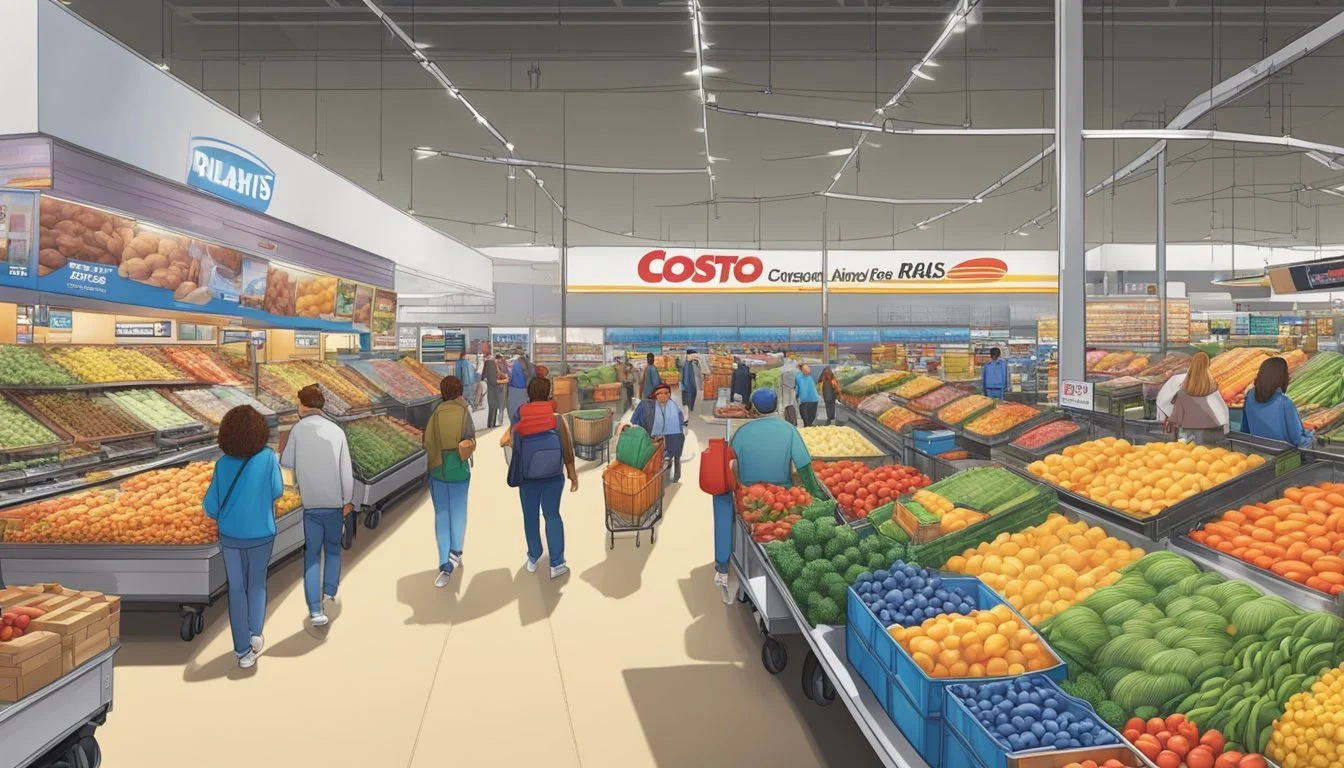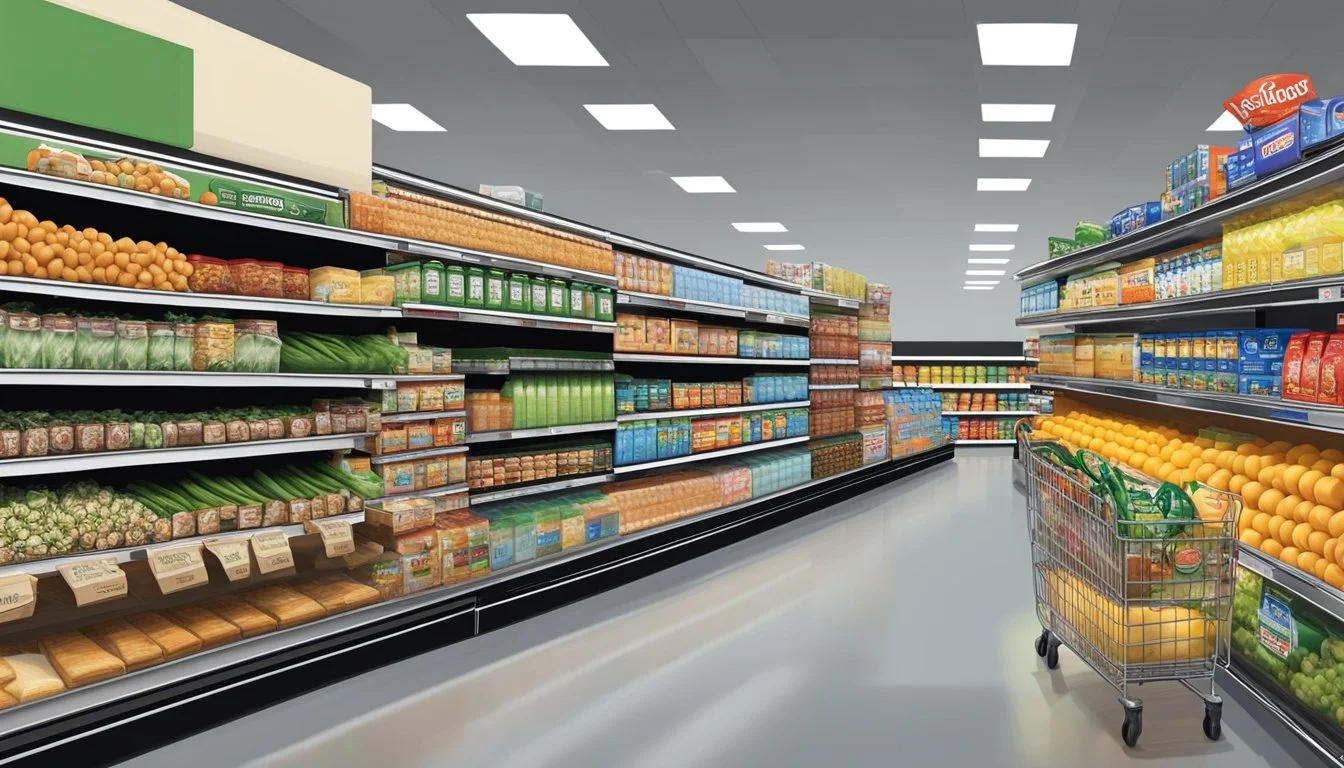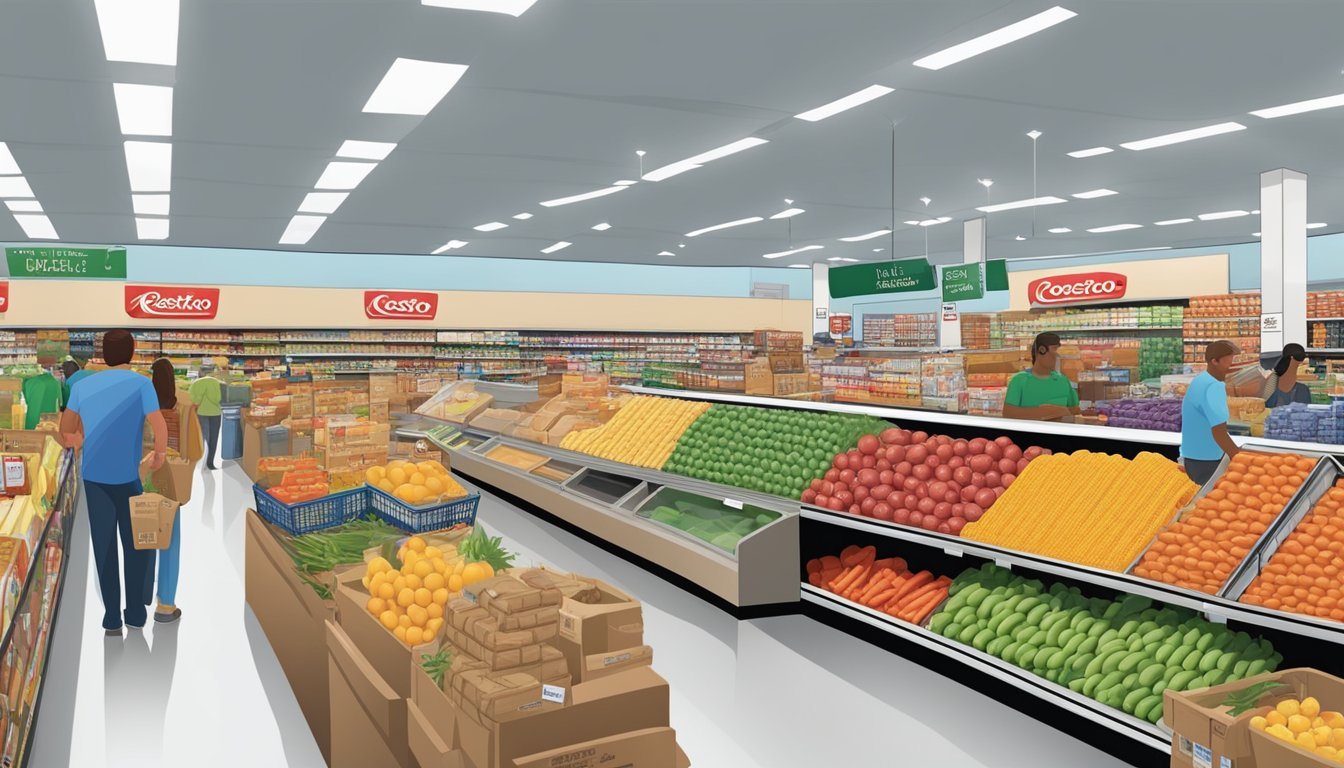Costco vs Ralphs
Comparing Shopping Experience, Quality, and Value
When it comes to grocery shopping, the choices can be overwhelming. Each store boasts unique advantages that might cater to different shopping needs and preferences. Among the myriad of options, Costco and Ralphs stand out as popular choices for many consumers. Costco is known for its bulk purchases and competitive prices on larger quantities, which can lead to significant savings for items with longer shelf lives or for households with higher consumption rates.
On the other hand, Ralphs, a supermarket chain with a strong presence in the Southern California region, offers a more conventional grocery shopping experience with a focus on quality and service. With its weekly specials and a variety of organic and locally-sourced produce, Ralphs is designed to cater to the daily shopper who values the ability to buy specific quantities and enjoy a wide selection of brands and products.
When comparing Costco and Ralphs, shoppers often weigh factors such as cost, product quality, variety, and shopping convenience. The decision on which store to frequent may come down to individual needs, such as the size of one's household, dietary preferences, storage space, and the importance of price versus convenience. Each store holds specific appeals, and the better choice varies by what the consumer values most in their grocery shopping experience.
Overview of Costco and Ralphs
When comparing Costco and Ralphs, consumers will find distinct differences in their histories, business models, and shopping experiences. Each store has evolved to offer unique shopping advantages and caters to slightly different customer needs.
History and Business Models
Costco began in 1976 as a warehouse club focused on providing bulk items primarily to businesses, but later expanded to serve individual consumers. Operating on a membership model, it offers goods at competitive prices, often in larger quantities. Costco's revenue relies significantly on membership fees and the sale of private label products under the Kirkland Signature brand.
Ralphs, established in 1873, is one of the oldest grocery chains in the United States, operating as a traditional supermarket. It is now a division of Kroger Co. and offers a variety of national and private label brands without a membership requirement. Ralphs emphasizes coupon savings, weekly specials, and a rewards program tied to the Kroger family of stores.
Store Layout and Shopping Experience
In Costco warehouses, items are displayed in bulk on pallets in a no-frills environment geared toward efficiency and volume sales. The layout is spacious with wide aisles, often creating a straightforward but less personalized shopping experience.
At Ralphs, customers navigate a more traditional supermarket layout with clearly defined sections for produce, meat, bakery, and other groceries. The store encourages leisurely shopping and offer targeted promotions through a digital app and paper coupons.
Costco:
Layout: Warehouse-style, bulk displays
Experience: Efficient, volume-focused
Shopping: Membership-based
Ralphs:
Layout: Conventional supermarket
Experience: Traditional, promotion-rich
Shopping: Open to the general public, rewards program available
Product Range and Quality
When determining which grocery store offers a better range and quality of products, it is essential to examine Costco and Ralphs in terms of their private label brands, the freshness of their produce and meat, and their selection of organic and specialty items.
Private Label Brands
Costco is renowned for its store brand, Kirkland Signature, which covers a vast array of products including high-quality groceries, household goods, and clothing. Customers often equate the quality of Kirkland Signature items with more premium labels. For example, their olive oil and batteries are widely praised for their quality. On the other hand, Ralphs, as part of the Kroger family, offers an extensive portfolio of store brands ranging from value-focused to gourmet and organic lines, such as Simple Truth.
Costco: Known for Kirkland Signature with products like olive oil and batteries.
Ralphs: Offers a range including value items and gourmet organic lines like Simple Truth.
Freshness of Produce and Meat
Shoppers often find Costco's produce section to be abundant, featuring both conventional and organic options. The store prioritizes selling in bulk which provides value but may be inconvenient for smaller households. Their meat selection is favorably reviewed for its quality and price but often comes in larger quantities. In contrast, Ralphs often receives high marks for fresh fruit and vegetables, catering to a broader set of household sizes. The store ensures a selection of meats that balances quality and variety, including different cuts and organic options.
Costco: Sells bulk produce and meat, praised for quality and price.
Ralphs: Offers a variety of fresh produce and meat, suitable for different households.
Organic and Specialty Selection
While Costco has expanded its offering of organic and specialty items, it still trails behind stores dedicated to such products like Whole Foods or Trader Joe’s. However, for shoppers interested in organic and specialty groceries at competitive prices, Costco's selection has grown appreciably. Ralphs provides a respectable assortment of organic products, including fresh vegetables, eggs, and milk. They also carry specialty items that appeal to a discerning customer base. Both stores have increased their range to meet growing consumer demand for higher quality and specialty dietary needs.
Costco: Offers competitive prices on a growing selection of organic and specialty items.
Ralphs: Carries a wide assortment, emphasizing organic vegetables, eggs, milk, and specialty items.
Pricing Strategies
In the competition between Costco and Ralphs, pricing strategies take center stage, with each retailer employing distinct approaches to provide value to their customers.
Membership Fees and Bulk Shopping
Costco operates on a membership-based model, where customers pay an annual fee to access the store's bulk purchasing options. This strategy can lead to noticeable savings for consumers, as bulk items often have lower price points compared to purchasing single units. Therefore, the value derived from shopping at Costco is maximized when customers use their membership to purchase larger quantities, which distributes the cost of the membership across numerous items, effectively reducing the overall price per unit.
Regular Prices and Sales
Ralphs, on the other hand, does not require a membership and focuses on offering competitive regular prices and sales. They utilize frequent sales events, providing temporary low prices on selected items which are open to all of their shoppers. While these reduced prices don't hinge on buying in bulk like at Costco, they offer immediate savings without any upfront membership cost. This pricing strategy appeals to customers seeking deals without the commitment of an annual fee.
Loss Leaders and Price Comparison
Both Costco and Ralphs use loss leaders—items sold at a loss to draw customers into the store. These products are strategically priced below market rates to increase foot traffic and stimulate sales of other goods. In a direct price comparison, cost-conscious consumers might find that bulk purchasing at Costco generally offers better per-unit value over time, despite the upfront membership cost. However, customers preferring not to buy in bulk or those looking for lower initial expenditure might find Ralphs to be more immediately accessible with its sales and lack of membership requirement.
Additional Services and Perks
When considering additional services and perks, both Costco and Ralphs offer unique benefits that enhance the shopping experience. They provide various in-store services and membership benefits that cater to different consumer needs.
In-Store Services
Costco is renowned for its wide range of in-store services that extend beyond grocery items. They offer Costco cakes from their bakery, known for personalization options and affordable pricing. Additionally, Costco's bakery section provides a variety of bread, pastries, and desserts. Shoppers often praise Costco's rotisserie chicken for its flavor and value. In contrast, Ralphs has a more traditional supermarket layout with a bakery that offers a selection of bread and desserts.
Costco:
Bakery: Offers customizable cakes and a variety of baked goods.
Rotisserie Chicken: Known for its size, taste, and price.
Ralphs:
Bakery: Features an assortment of freshly baked bread and desserts.
Membership Benefits
The benefits of membership at these stores vary significantly. Costco requires customers to have a membership to shop, which includes a fee but provides access to exclusive deals and bulk pricing. Members can benefit from annual rewards based on their spending. With Ralphs, their membership is free and focuses heavily on digital experiences. Shoppers can take advantage of digital coupons through their free loyalty program, which offers personalized deals and the ability to garner savings over time.
Costco:
Membership Cost: Annual fee with access to exclusive deals and potential rewards.
Coupons: Limited to in-store deals and occasional mailers.
Ralphs:
Membership Cost: Free loyalty program.
Digital Coupons: Wide array of personalized digital coupons available to members.
Customer Experience
When choosing between Costco and Ralphs, the customer experience can be a pivotal factor. This includes the interactions with staff, the efficiency of the checkout process, and the stores' policies on returns and customer satisfaction.
Staff Friendliness and Helpfulness
Costco is renowned for its customer service with staff often going beyond expectations to assist shoppers. Employees are trained to be proactive in helping customers find items and providing assistance whenever needed. In contrast, Ralphs also displays friendly customer service. Staff at Ralphs are generally courteous, and the store's layout frequently allows for easy access to help.
Checkout Process
The checkout process at Costco can be quite efficient, especially given the store's volume of traffic. Customers might experience longer lines, but the process is streamlines with multiple staff members typically engaged in the checkout. Ralphs tends to have a more traditional checkout experience, with an average number of cashiers available, but lines can vary widely depending on the time of day.
Return Policy and Customer Satisfaction
Costco's return policy is notably robust, offering customers the ability to return items with virtually no time limit on most products, which enhances customer satisfaction. Ralphs also maintains a satisfactory return policy, although more conventional, with specific time restrictions and requirements for returns.
The choice between Costco and Ralphs ultimately hinges on what aspects of customer service are most valuable to shoppers, whether it is the overall friendliness of staff, the swiftness of the checkout experience, or the flexibility of return policies.
Comparative Analysis
In this section, the analysis hones in on how Costco and Ralphs compare in key areas, such as their target consumer base, brand perception, and the assessments of both experts and shoppers.
Target Demographic and Market Position
Costco targets consumers looking for bulk purchases and values membership-based warehouse shopping. It caters to individuals and families eager to capitalize on bulk savings, often positioning itself as a one-stop-shop for a variety of goods. In contrast, Ralphs, part of the Kroger family, serves a broader demographic seeking a traditional grocery shopping experience with a focus on convenience and quality produce.
Consumer Preferences and Brand Strength
Costco has built a strong brand around its wholesale model and cost-effectiveness, especially for households with higher consumption needs or those who prefer to shop less frequently. Ralphs appeals to customers who prioritize shopping convenience, brand variety, and frequent purchases of fresh groceries. Additionally, both stores have their own loyal customer bases, with Costco often being compared to Sam's Club and BJ's Wholesale, while Ralphs competes with supermarkets like Safeway, Wegmans, and Sprouts Farmers Market.
Expert and Consumer Reviews
Experts tend to favor Costco for its economic value and product quality, especially when it comes to bulk items. Consumer reviews often reflect appreciation for Costco's competitive pricing on a per-unit basis, particularly in comparison to Walmart, Target, and Winco. Ralphs reviews frequently emphasize the convenience and quality of products, but with a higher price point compared to discount stores like Walmart. Both Costco and Ralphs have mixed reviews when it comes to customer service experiences, which can play a significant role in consumer satisfaction.
Conclusions and Recommendations
When deciding between Costco and Ralphs, shoppers must consider their grocery needs, budget constraints, and preferences for overall quality.
For Bulk Purchases:
Costco excels in offering bulk items, making it a valuable choice for families and those looking to stock up on shelf-stable products. The savings in cost per ounce for these items often prove substantial.
Considering Value:
Value-seeking customers may find better deals at Costco due to the larger quantity packaging, which can offer more savings over time.
For Varied Selection:
Ralphs offers a diverse selection that may be more suitable for consumers who prefer buying in smaller quantities or seek a wider variety of brands.
Overall Quality:
Both stores provide a range of quality options; however, one’s definition of quality may influence their choice. Those who value organic products or unique brands might lean towards Ralphs. In contrast, those who are satisfied with store-brand quality at a lower cost might favor Costco’s Kirkland Signature line.
Recommendations:
Shoppers should reflect on their shopping habits. Those who prioritize bulk purchases and are consistent with their product needs will likely benefit from a Costco membership.
For individuals or smaller households, Ralphs could be more practical, avoiding the potential waste associated with bulk buying.
Customers interested in exploring the Lucky range, considering its reported value, may want to compare the offerings at Ralphs which typically stocks a broad spectrum of brands.
In summary, the better grocery store depends on personal shopping patterns, family size, and value perception. It is advised that consumers visit both retailers to gauge which aligns best with their shopping preferences.






